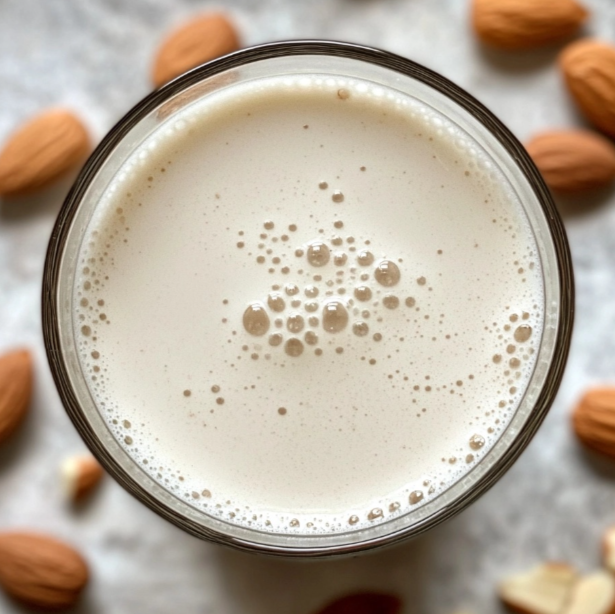Introduction
Silk Almond Milk is a favorite among those seeking dairy-free alternatives. It offers a creamy, nutty flavor while being rich in nutrients and free from lactose. But what makes it healthy, and how does it compare to other milk alternatives?
For a detailed look into plant-based options, check out these plant-based milk guides to see how Silk Almond Milk measures up against others like soy and oat milk.
Nutritional Profile of Silk Almond Milk
Silk Almond Milk is enriched with essential nutrients, making it a healthy addition to your diet:
- Low Calories: A great choice for those watching their weight.
- Vitamin E: A natural antioxidant that supports skin and immune health.
- Calcium and Vitamin D: Fortified for strong bones.
- Cholesterol-Free: Ideal for heart health.
Looking to maximize the benefits of fortified foods? Explore the benefits of fortified plant-based drinks to learn why they are crucial for vegan diets.
Health Benefits of Silk Almond Milk
Digestive-Friendly Option
For individuals with lactose intolerance, Silk Almond Milk provides a smooth, lactose-free alternative. It is also easier to digest than other milk options, making it suitable for sensitive stomachs.
Weight Management
Silk Almond Milk is an excellent choice for weight-conscious individuals due to its low calorie count. Unsweetened varieties contain even fewer calories, offering a guilt-free way to enjoy milk in smoothies or coffee.
Check out low-calorie recipes with plant-based milk for meal ideas that align with your health goals.
Potential Downsides of Silk Almond Milk
While Silk Almond Milk has numerous benefits, it’s essential to consider its drawbacks:
- Low Protein Content: Compared to soy or dairy milk, almond milk has less protein.
- Added Ingredients: Some versions may contain stabilizers or sweeteners.
- Environmental Concerns: Almond farming has a significant water footprint.
For more on making eco-conscious choices, read sustainable plant-based milk options to understand how Silk Almond Milk fits into a greener lifestyle.
How to Use Silk Almond Milk in Your Diet
Silk Almond Milk is versatile and can replace dairy in various recipes:
- In Smoothies: Blend it with fruits and greens for a creamy base.
- In Coffee or Tea: Use it as a dairy-free alternative that froths beautifully.
- In Baking: Substitute it for dairy milk in muffins, pancakes, and other recipes.
Explore these vegan dessert recipes to discover how almond milk can elevate your favorite sweets.
FAQs About Silk Almond Milk
Is Silk Almond Milk healthier than dairy milk?
Silk Almond Milk is a great alternative for those avoiding lactose or cholesterol. However, it has less protein compared to dairy.
Does it contain added sugar?
Unsweetened varieties are free from added sugar, but flavored options may contain sweeteners.
Can it replace dairy in recipes?
Yes, Silk Almond Milk works well in both sweet and savory dishes, including baked goods and soups.
Conclusion
Silk Almond Milk is a nutritious and versatile plant-based alternative. Its low calorie count, lactose-free formula, and fortified nutrients make it a healthy option for many. While it may have some downsides, such as lower protein content, its benefits outweigh the drawbacks for most diets.
Incorporate it into your meals and try new recipes like those in creative plant-based cooking guides. You’ll find that Silk Almond Milk can be a delicious and healthy addition to your lifestyle.

